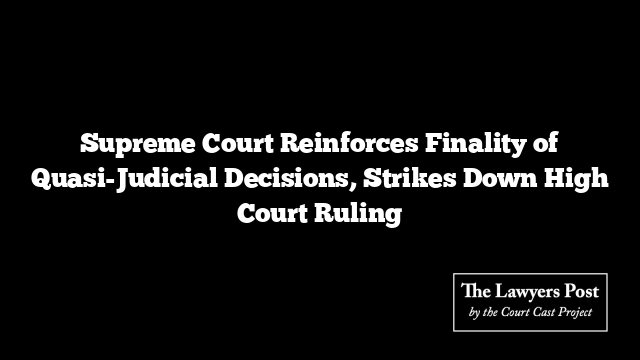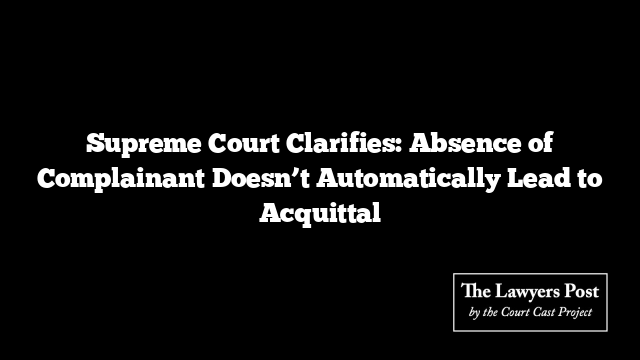The Supreme Court has reaffirmed that quasi-judicial bodies must adhere to the doctrine of res judicata, preventing repeated litigation over the same matter. In a recent ruling, the Court overturned a Rajasthan High Court decision that had upheld a second ruling by a quasi-judicial authority—despite the first decision going unchallenged and remaining unimplemented.
A bench of Justices Vikram Nath and Prasanna B. Varale reviewed the case, where a quasi-judicial body had revisited an issue it had already decided in a previous application. The authority’s second decision effectively ignored its earlier ruling, which had attained finality. The High Court had upheld this second decision, a stance the Supreme Court found legally flawed.
The Supreme Court emphasized that once a quasi-judicial body issues a ruling that is not contested through proper channels, it becomes binding. Any subsequent attempt to re-adjudicate the same issue is impermissible. Citing legal precedents, the Court underscored that errors in fact or law made by such bodies can only be challenged through appeal, revision, or writ proceedings—not through fresh applications seeking contradictory rulings.
The judgment referenced key cases, including Ujjam Bai v. State of U.P. and Abdul Kuddus v. Union of India, both of which established that quasi-judicial findings cannot be overturned arbitrarily. The ruling made it clear that a quasi-judicial authority cannot unilaterally contradict an earlier decision made by a coordinate or predecessor authority.
Applying these principles, the Supreme Court held that the second application before the quasi-judicial body should have been dismissed outright. Consequently, it set aside the Rajasthan High Court’s order and allowed the appeal, reinforcing the principle that once a competent authority settles a matter, its decision stands unless lawfully overturned.





